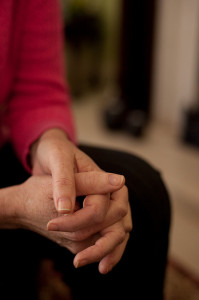- Calls to this hotline are currently being directed to Within Health or Eating Disorder Solutions
- Representatives are standing by 24/7 to help answer your questions
- All calls are confidential and HIPAA compliant
- There is no obligation or cost to call
- Eating Disorder Hope does not receive any commissions or fees dependent upon which provider you select
- Additional treatment providers are located on our directory or samhsa.gov
What Does IOP Treatment Look Like for Binge Eating Disorder?

With the options of treatment for Binge Eating Disorder (BED) varying based on acuity of symptoms, it is helpful to know that a continuum of care is available. Transitioning from higher levels of care, such as hospitalization or residential treatment, to lower levels of care, like IOP Treatment or outpatient treatment, can be overwhelming.
Learning to readjust to a normal schedule and home life can feel stressful, no matter how much you have prepared in your residential care.
A Balance Between IOP Treatment and Outpatient
Intensive Outpatient Care (IOP) is a level of treatment between residential treatment and outpatient care that can better help a patient adjust to the transition of stepping down from acute care.
While a patient may have made significant gains over binge eating disorder behaviors and has stabilized medically, nutritionally, and psychologically, learning how to maintain recovery on your own can be challenging.
It is important to know that there are “step-down” levels of care, such as intensive outpatient treatment, which can help you in reintegrating back into a normal routine and schedule while staying connected to the support you need.
Becoming Independent While Continuing Professional Support

IOP treatment programs may vary but are typically flexible to allow an individual to become reintegrated into a normal routine, such as with a work or school schedule.
IOP treatment may also be a helpful option for an individual with binge eating disorder who is needing more support but unable to attend higher levels of care for treatment, whether due to financial reasons, or related to scheduling issues.
This may work well for a person wanting treatment interventions while still being able to maintain daily responsibilities involve work, career, school, family care, etc.
Sessions usually occur for a portion of the day, such as in the evenings, to encourage the resumption of relationships and life outside the eating disorder.
IOP treatment for binge eating disorder will focus on various components, continuing treatment from residential care, such as:
- Counseling
- Group therapy
- Meal planning
- Nutritional consultations
- Psycho-educational work
Some medical supervision is also integrated into IOP treatment to ensure a patient maintains stability, and sessions will often include group meal times led by a therapist or dietitian. Programs that offer IOP treatment are often structured in a way that integrates a personalized plan for recovery into real-life situations and scenarios.
Goals for IOP Treatment
The following are some goals that IOP treatment can help accomplish for a person recovering from binge eating disorder:
- Promote the successful reintegration into a “normal” schedule from more acute levels of treatment, including school, career, family, and social life.
- Assist a patient in identifying eating disorder triggers in everyday scenarios.
- Help a patient to develop healthy coping skills for managing eating disordered thoughts and behaviors.
- Continue the promotion of healthy eating/exercise habits
- Develop relapse prevention plans for ongoing recovery
Getting the Best Support Possible for Your Needs
IOP treatment can be an effective option for individuals who are transitioning from a higher level of care and needing more support than what is traditionally offered in outpatient care. Alternately, IOP may also be a great option for patients who require acute treatment but need a more affordable option than residential care.
It is important to be assessed by a specialized eating disorder treatment professional, who can recommend what level of treatment may be most effective for you. Following these recommendations as closely as possible can help support better treatment outcomes.
If you are seeking treatment for binge eating disorder, be sure to discuss your options with a trusted health care professional, who can best assess your symptoms and the level of care most appropriate for you.

Crystal is a Masters-level Registered Dietitian Nutritionist (RDN) with a specialty focus in eating disorders, maternal/child health and wellness, and intuitive eating. Combining clinical experience with a love of social media and writing. As a Certified Intuitive Eating Counselor, Crystal has dedicated her career to helping others establish a healthy relationship with food and body through her work with EDH and nutrition private practice.
The opinions and views of our guest contributors are shared to provide a broad perspective of eating disorders. These are not necessarily the views of Eating Disorder Hope, but an effort to offer a discussion of various issues by different concerned individuals.
We at Eating Disorder Hope understand that eating disorders result from a combination of environmental and genetic factors. If you or a loved one are suffering from an eating disorder, please know that there is hope for you, and seek immediate professional help.
Updated By: Jacquelyn Ekern, MS, LPC on August 31, 2017
Published on EatingDisorderHope.com, Eating Disorder Information Help & Resources
